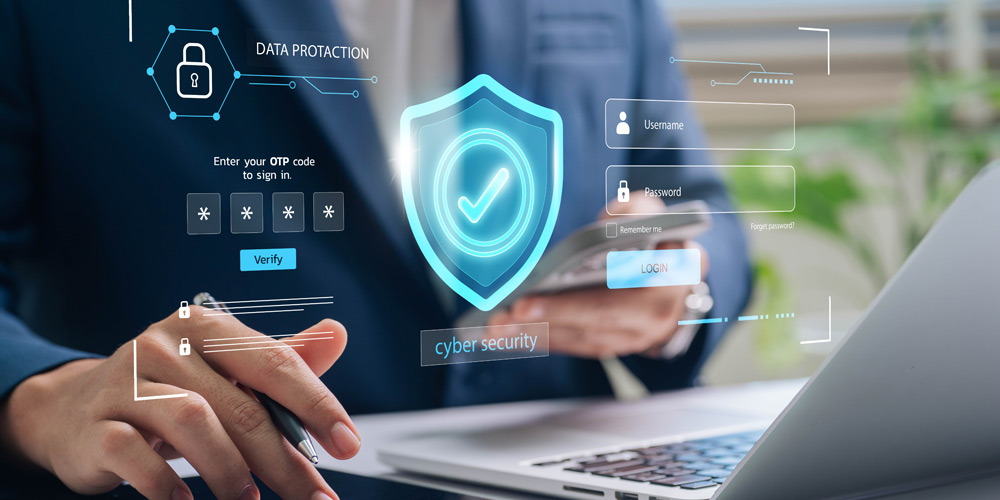Safety Tips for Sharing Financial Information Online

Stealing financial information used to be a lot harder.
In pioneer time, you probably kept all of your personal information in a journal stashed in a drawer -- except for when you went to the frontier bank to take out a loan for gold mining equipment. The biggest risk of identity theft was being attacked by a wayward bear who would steal your journal and use your personal data and a convincing fake mustache to take out that loan for himself.
In more recent years, maybe you’d receive a letter or an email from a foreign prince asking for your name and private information.
Telephones and the internet have not just made personal finance and purchasing more convenient, they have also given identity thieves more opportunities to access your sensitive information and use it for scams. However, if you only share information with those you have personally contacted or those with whom you have an established relationship, you will have a better online safety status.
Phone
Prank calls can be fun. Well, they used to be fun when people actually picked up their phone. Now it seems that young people only communicate through text messages and TikTok. That means it’s mostly older people who pick up the phone these days, and it’s older people who are more susceptible to phone scams.
“When sharing information over the phone, the general rule of thumb is [to] only share personal identifying or sensitive information when you make the call,” says Robert Siciliano, security awareness expert and CEO of Safr.Me. “Not in response to a phone call.”
Scammers may even fake their phone numbers to make it seem like a call is coming from a trusted institution.
“Through a technique called spoofing, scammers can manipulate your Caller ID so that it appears the call is coming from a legitimate entity, such as the IRS, when the call is coming from a scammer,” warns Steve Weisman, lawyer, author, and identity theft expert who writes at Scamicide.
If you receive a call from someone claiming to be a representative of your bank, credit card company, or a similar entity asking for your personal financial information, and you have no relationship with them or are not expecting a call from them, do not give it up. Look up the official phone number of the company they claim to represent, and make the call yourself to ensure you are giving your personal details to a legitimate source.
Email revolutionized the sending of the written word. Now scams can take place from across the world in a matter of seconds. As the old saying goes, give a man a fish and he’ll eat for a day, but if you teach a man to phish, he’ll steal account numbers for a lifetime.
Phishing scams are emails that, like the previously mentioned phone calls, will ask for personal information and may appear to be from a trusted entity. It’s common for cybercriminals to create email addresses that are close to legitimate company email addresses, so be vigilant.
There is also spear phishing, which is phishing aimed at a specific email account. Weisman urges extreme caution if you receive a link in a text message or email. The email may claim the link is a password reset or a way to enter into a lottery. In reality, it could be malware that can transmit your information or cause problems with your computer or smartphone.
Don’t click suspicious links. In fact, don’t click any link in an email or text unless you were expecting to receive it. Siciliano also recommends calling to make sure the email was actually sent by the person it appears to be from.
Social media sites
Most of the same advice about email safety also applies to social media safety. Treat a suspicious message on a social networking site the same way you treat a suspicious email. If you receive an odd message from a friend’s account, there’s a chance it has been hacked, so reach out to them in a different way rather than responding or clicking any link(s).
Protect yourself
It doesn’t take much information for scammers to commit cybercrimes against you. With some combination of full name, banking information, social security number, or other financial details you could encounter fraudulent credit card charges or worse.
In addition to taking precautions on how you respond to phone calls and emails, you can take steps to protect yourself in advance. Keep your privacy settings updated across all of your accounts so identity thieves don’t have access to too much information.
Make sure you have strong passwords for your email, social media accounts, financial accounts, and any other places that require a login. You can even use a password manager, which will generate strong varied passwords for different sites while only requiring you to remember one. Make sure your operating systems are up-to-date and running antivirus software if the device requires one.
You can’t protect against everything. An entity with your credit card number may have a data breach, for example. But by taking the proper precautions, you can help you reduce the risk.

Robert Siciliano is a No. 1 best-selling author and CEO of Safr.Me. Safr.Me is funny, but serious, about teaching fraud prevention and personal security. Siciliano is a U.S. Coast Guard Auxiliary Flotilla Staff Officer of the U.S. Department of Homeland Security, whose motto is "Semper Paratus" (Always Ready). His programs are cutting edge, easily digestible, and provide best practices to keep consumers safe and secure.

Steve Weisman is a lawyer, college professor at Bentley University, and author. He is one of the country’s leading experts in identity theft. He is the author of “Identity Theft Alert.” He also writes the blog Scamicide.com, where he provides daily updated information about the latest scams and identity theft schemes.
Please note the below article contains links to external sites outside of OppU and Opportunity Financial, LLC. These sources, while vetted, are not affiliated with OppU. If you click on any of the links you will be sent to an external site with different terms and conditions that may differ from OppU’s policies. We recommend you do your own research before engaging in any products or services listed below. OppU is not a subject matter expert, nor does it assume responsibility if you decide to engage with any of these products or services.




